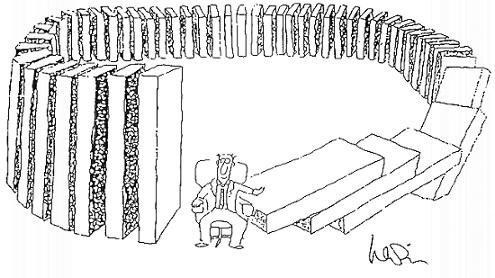An ongoing dialogue on HIV/AIDS, infectious diseases,
May 18th, 2011
HIV Exceptionalism and the Department of Unintended Consequences
Quick question: If there were one piece of information — clinical or lab — that you would use to determine the quality of care in an HIV  program, what would it be? (Choose one.)
program, what would it be? (Choose one.)
- Rates of influenza vaccine administration
- Receiving PCP prophylaxis with CD4 < 200
- Adherence counseling before starting antiretroviral therapy
- Baseline toxoplasmosis serology
- Proportion of patients on treatment with suppressed viral load
Maybe I’m being presumptuous here, but one of these — virologic suppression — completely blows the rest of them away. Sure, the others are worthwhile, but data linking them to improved outcomes for people with HIV are either pretty weak (adherence counseling, flu vaccine) or nonexistent (toxoplasmosis serology).
Even the use of PCP prophylaxis for CD4 < 200, which was highly effective and prolonged survival in the pre-ART era, doesn’t come close to the benefits of effective ART. One paper even questions whether we need it, provided that the person is on fully suppressive HIV therapy.
So why bring this up under the title of “HIV Exceptionalism”? Because a certain unnamed institution in an unnamed city (hint: begin with “B”) cannot obtain the aggregate viral load data on their own patients as part of a quality improvement initiative.
The reason? Anything with “HIV” attached to it, you see, is privacy-protected information under Massachusetts Chapter 111, Section 70F, unless the patient provides written informed consent. No exceptions listed.
Which means that people with HIV can’t participate in this quality improvement program — in effect, are discriminated against — due to a law that in the post HIPAA era should not even be necessary, since all medical information is now considered confidential.
The state law on HIV testing and privacy, by the way, dates back to when HIV was called “HTLV-III”, and it’s showing its age. Fortunately, revisions to it are in the works that allow for appropriate testing, clinical care, research, and quality improvement.
Stay tuned.


Rock on Paul. I am with you 100%